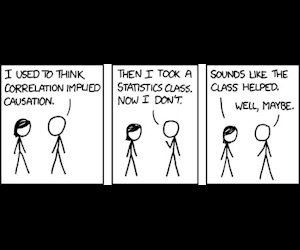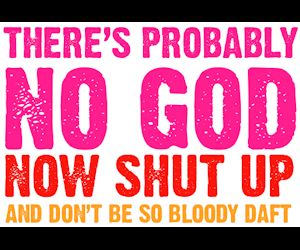5 More Logical Fallacies in Politics (2015)
Another presidential election season is ramping up in America, and with it comes the usual round of rampant logical fallacies. The following come exclusively from presidential contenders on both sides of the aisle. Before I begin to call them out for their bad logic, let me clarify that this is in no way meant to defame or promote any presidential candidate. We all commit logical fallacies--and we do it with shocking regularity--and no presidential candidate is immune. Additionally, when an argument is fallacious, it would be unwise to therefore assume its conclusion is false. That is itself a fallacy (the "fallacy fallacy," believe it or not).
 |
THE NIRVANA FALLACY
"The issue is, if we bring in tens of thousands of refugees into this country, have we solved the problem? The answer to that is no."
-Ben Carson, The Today Show, 12/01 |
 |
THE NIRVANA FALLACY
"The issue is, if we bring in tens of thousands of refugees into this country, have we solved the problem? The answer to that is no."
-Ben Carson, The Today Show, 12/01
|
The Nirvana fallacy is a pretty common one in politics, in that it supposes that any argument for a proposal that doesn't offer a perfect solution must be false. It tends to be a tool of the political right when discussing gun control, entitlement reform, healthcare, and the like. Here, Ben Carson is talking about the problems in Syria and arguing that, since bringing Syrian refugees into this country won't make Syria a safe place, it's a bad idea. It's an entirely irrelevant line of reasoning, and a bit of a straw man argument, since no one is suggesting America bring in refugees just because it will solve the problems in Syria.
 |
POST HOC ERGO PROPTER HOC
"While we still do not know the shooter’s motive, what is clear is that Planned Parenthood has been the subject of vicious and unsubstantiated statements...[I] hope people realize that bitter rhetoric can have unintended consequences."
-Bernie Sanders press statement, 11/28 |
 |
POST HOC ERGO PROPTER HOC
"While we still do not know the shooter’s motive, what is clear is that Planned Parenthood has been the subject of vicious and unsubstantiated statements...[I] hope people realize that bitter rhetoric can have unintended consequences."
-Bernie Sanders press statement, 11/28
|
For those of you not paying attention, a Planned Parenthood clinic was attacked by a crazy man with a gun last week, killing three people. The only thing more predictable than the shock and horror of such a violent act is the reaction of politicians who are quick to make a connection between rhetoric they disagree with and an event we can all agree is terrible. Since there was a surge in political attacks against Planned Parenthood a few months ago and there was a shooting at a Planned Parenthood clinic that happened next, people like Bernie Sanders none-too-subtly imply it must be the political attacks that caused the physical one. This is crystal clear post hoc reasoning (and easily disproven by pointing out that there were violent attacks at Planned Parenthood clinics long before the recent Center for Medical Progress videos put PP in the spotlight).
 |
APPEAL TO PROBABILITY
"You have a huge Muslim population in Patterson and different places--Jersey City--and unbelieveable large populations...When the Trade Center came down, it was done all across the world, and you know that because it has been reported, strongly. Why wouldn't it have taken place [in New Jersey]?"
-Donald Trump, Meet the Press, 11/29 |
 |
APPEAL TO PROBABILITY
"You have a huge Muslim population in Patterson and different places--Jersey City--and unbelieveable large populations...When the Trade Center came down, it was done all across the world, and you know that because it has been reported, strongly. Why wouldn't it have taken place [in New Jersey]?"
-Donald Trump, Meet the Press, 11/29
|
Donald Trump recently asserted that there were "thousands" of Muslims celebrating in the streets of New Jersey immediately following the 9/11 attacks on the World Trade Center. No one has been able to find the television footage he cites as evidence, and so he recently made the above argument. The fallacy here is an appeal to probability, an assumption that, because you think something should have happened, it must have happened.
 |
FALSE DILEMMA
"They talk about deportation and walls, instead of recognizing that America's diversity is our greatest strength and supporting meaningful reform that will keep families together."
-Hillary Clinton, speech to the Atlantic Council Women's Leadership in Latin America Initiative, 11/30 |
 |
FALSE DILEMMA
"They talk about deportation and walls, instead of recognizing that America's diversity is our greatest strength and supporting meaningful reform that will keep families together."
-Hillary Clinton, speech to the Atlantic Council Women's Leadership in Latin America Initiative, 11/30
|
With another minor straw man argument, Hillary Clinton has offered a perfect example of the false dilemma, the fallacy that states that two or more options must be mutually exclusive, that they can't all be true. In other words, there can only be (A) or (B), not both (A) and (B). Here, Clinton is stating that her political opponents on the right can't (A) recognize the strength of American diversity or support meaningful reform to keep families together while (B) talking about deportation and walls. Indeed, Clinton's statement disproves itself, since she is presumably recognizing the strength of diversity within the same sentence in which she mentions deportation and walls.
 |
ARGUMENT FROM IGNORANCE
Climate change is "not a crisis," because "I don't see there's any evidence that it's a crisis."
-Chris Christie, Morning Joe, 12/01 |
 |
ARGUMENT FROM IGNORANCE
Climate change is "not a crisis," because "I don't see there's any evidence that it's a crisis."
-Chris Christie, Morning Joe, 12/01
|
The argument from ignorance supposes that, since the person making an argument is unaware of evidence that refutes it, the argument must be true. Yesterday, Chris Christie went on MSNBC and debated Joe Scarborough on the reality of manmade climate change. Though Christie was unequivocal about his certainty that humanity affects the climate and that the climate is changing, he asserted it wasn't a crisis. When pushed to explain why not, he said the above, an obvious argument from ignorance. Just because he doesn't see "any evidence that it's a crisis" doesn't mean it can't be a crisis.
-e. magill 12/2/2015
|
|